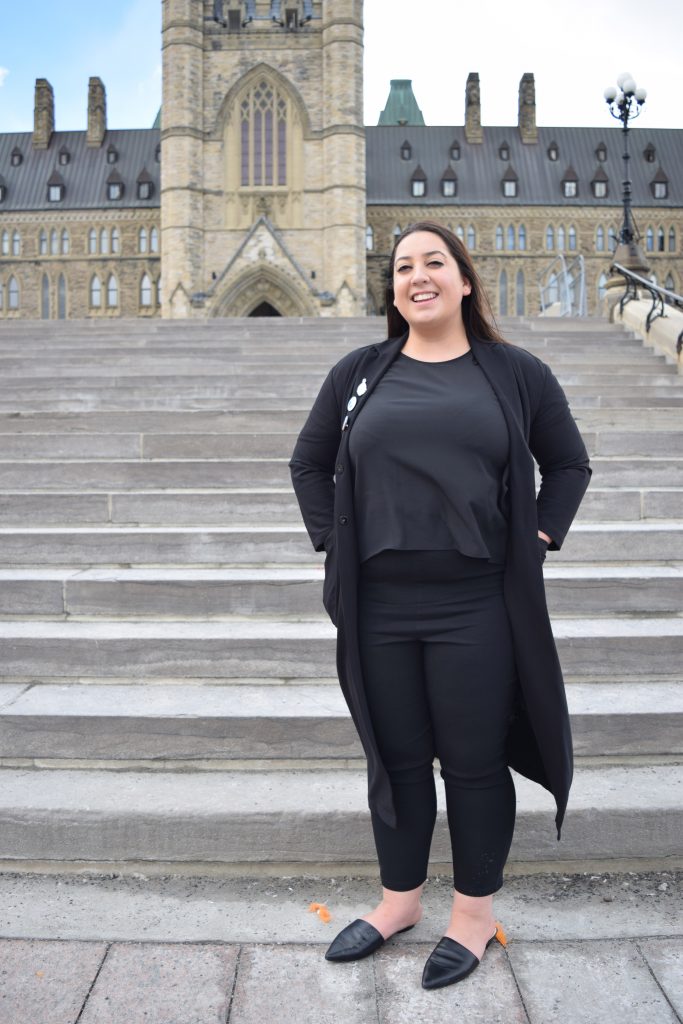Young women take federal seats
By Caroline O’Neill
A new cohort of MPs took over the House of Commons for International Women’s Day with 338 young women taking up a seat in every federal riding to celebrate 100 years since Canadian women first earned the right to vote.
“ It makes me feel really proud and hopeful,” said Ally Freedman, the Ottawa Centre delegate from the March 8 event dubbed Daughters of the Vote.
“We’re all working for a better Canada.”
Freedman, who was chosen from over 3,000 applicants across Canada, joined the other 337 young women to take their spot in Parliament – in Freedman’s case, sitting in for Ottawa Centre MP Catherine McKenna, Canada’s environment minister. The initiative is a project created by Equal Voice, a non-partisan organization dedicated to empowering women to become politically active.
As a Métis woman, Freedman said she felt the gravity of being in the building where some of the darkest decisions about Indigenous peoples in Canada were made.
“I am able to be in the most powerful room in our country as an openly Indigenous young girl,”said Freedman, who wore moccasins and carried an eagle feather into the House. In 1960, Indigenous women living on reserves were granted the right to vote.
She was one of about 70 Indigenous delegates, making up 20 per cent of the group of young women from across the nation. Freedman and other Indigenous women sang a “strong woman song” before they took their seats in the House of Commons.
Delegates also participated in provincial events prior to gathering together on Parliament Hill. Freedman travelled to Toronto to take in question period at Queen’s Park.
After, she and her fellow Ontario “daughters” participated in a panel discussion with Canadian journalists and politicians. She also met with Ontario’s attorney general and Ottawa Centre MPP, Yasir Naqvi, who applauded the initiative.
“I’ve had the opportunity to serve as the president of the Ontario Liberal Party in the past,” he said.
“And one of the things I was very keen about… is how do we encourage more women to run for public office and in our case, to become MPPs.”
Freedman, a third-year political science student at Carleton University, has met and spoken with both Naqvi and McKenna.
“I just loved her (Ally’s) energy, her excitement about the program and about women’s roles in politics and in public policy making,” said Naqvi.
“We had a couple really good conversations.” Freedman said she is connecting with Naqvi and McKenna to explore ways to get further involved in politics on either a provincial or federal level.
As the Ottawa Centre delegate, Freedman spoke alongside McKenna at Mayor Jim Watson’s annual International Women’s Day breakfast at City Hall where Watson pointed out Ottawa women have had the right to vote municipally since 1887.
“We have to prove that the new girls’ club is real but the only way that happens is if we all step up and we help other women,” said McKenna before inviting Freedman to address City Hall.
Freedman says she is discussing ways to bring more of an Indigenous perspective to McKenna’s work on climate change.
Freedman said the female politicians she’s engaged with are honest about the limitations prospective female candidate face.
Despite women holding only 31 per cent of seats in the House of Commons, 58 per cent of Candians feel there either too many or enough women in Canadian politics, according to Abacus Data and Equal Voice.
But hearing her peers give speeches about Islamophobia, campus sexual violence and Indigenous policymaking, from the very seats held by a mostly male group has left Freedman inspired.
“It’s a symbol,” she said, “of how the times are changing.”

